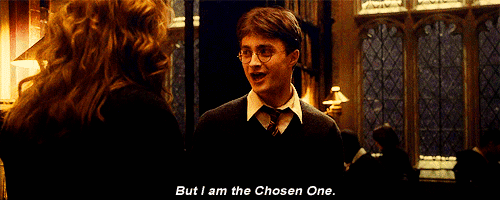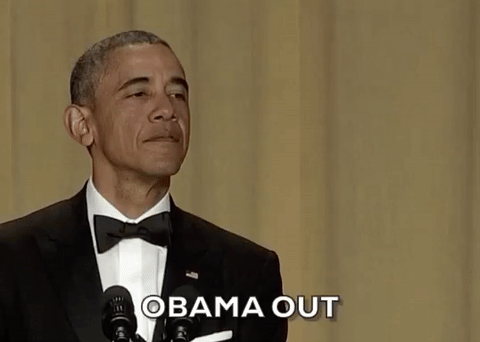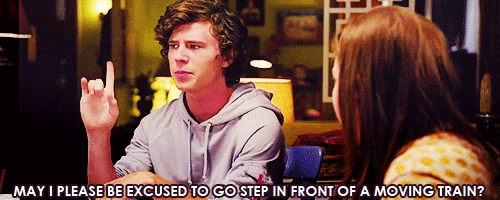How to Hold a Conversation 101
If you’ve ever taken Conversation 101 (i.e. a friend helping you get ready for a date), you’ll know that the first thing any advisor says is, “Just ask them questions about themselves.”
So, why then, do the majority of people I meet fail to follow such a common direction? Heck, sometimes I fail, too, despite being someone who’s overly conscious of how other people feel when talking to me. I don’t think the lack of inquiring minds is simply a sign of everyone being too preoccupied with themselves, although that’s a given. And I don’t even say that in a bad way. It’s just the way it is. Being as invested in the lives of other people as you are in your own life is nearly impossible. Even if you volunteer or save lives for a living, you’re still living in “your world,” thinking primarily about the experiences you’ve had, or the stresses you’re currently facing. That’s the nature of being an individual.
But there’s more to it. There’s a lack of interest in learning the structure of interactive skills. Conversation is not always natural, thus we must put a little effort into mastering it– starting with the basics, like implementing the question rule.
Even the most selfless or socially acute people need to actively remind themselves to ask questions of others more regularly. This allows us not only to listen and learn, but also to relate and bond. Now, this doesn’t mean turning someone’s answer into an opportunity to take the spotlight, but if done with the true intention to understand more about another person, you’ll find yourself building a rapport by pinpointing similarities in your own life, along with pointing out differences to validate their unique experience.
Breaking down the dynamics of conversation in such an analytical fashion may seem disingenuous, like those dating shows when someone wears an earpiece in order to be fed lines by a third party, but as a writer, I firmly believe in the power of understanding how language can manipulate the entire mood or vibe of a situation. When the pattern of questions, beats of silence, anecdotes, original thoughts, and transitions are successfully executed, it completely alters the unique relationship between those conversing, and even more so, affects the way those people make their way through life, thus altering the rest of time. Pretty huge. Pairing that skillful, intentional verbiage with body language, and BOOM, you basically hold the power to change the world.
Think about the most impressive figures of our time– they all know how to successfully converse. One the comes to mind is Obama. Whether or not you agree with his politics, you can’t deny his charisma. So much of that comes from his ability to know when and how to use humor, his eloquent delivery of speeches with beats and inflections, and the way we’ve seen him show interest and relate to others with questions and thoughtful responses. You can’t deny how he uses language to manipulate the room and his reputation. And I don’t say “manipulate” with its usual negative connotation. Manipulating the world around you is a natural part of every single person’s daily life.
This is not a political endorsement (I keep all my political views offline), rather Obama is just an excellent example of what I’m trying to convey. Public speaking is a different beast than conversing, but they’re both ways of using language to control a room or interpersonal dynamic (in Obama’s case, his dynamic with his constituents).
When it comes to examining the average person’s ability to converse, I must say I’ve been on some horrible, horrible dates for which painful conversation was to blame. Lack of chemistry is rarely the root of poor exchanges, since I’ve had plenty of amazing conversations with my girlfriends where no sexual chemistry exists. I’ve also had great conversations with people with whom I share little in common. So saying a bad first date has everything to do with the lack of chemistry is silly. No, it has to do with the inability of one or both parties to facilitate an interesting dialogue.
Sure, you’ll have an easier time relating to one person over another, but if everyone knew how to ask questions, I think we’d find ourselves in far fewer awkward encounters. If you don’t get an answer to which you can relate or expand upon, it’s easy enough to ask a follow up. For example:
“What did you study in college?”
“Math.”
[Person can’t relate.] “Oh wow, braniac. So why did you choose that major?”
“I really just enjoy the process of crunching numbers.”
“That’s amazing. I wish I were that way. I still use my fingers to count. But I felt the same way about writing, and most people I know think writing an essay sounds like a sick form of torture.”
[Other person’s cue to ask a question.] “Haha, yeah I hate writing. What do you write about?”
I mean, that’s a pretty basic and silly exchange, but these two hypothetical people don’t necessarily have a common interest, yet the proposed questions allow conversation to flow without awkward pauses or either person feeling dejected.
Perhaps this is a grade school challenge, but as with any skill, reviewing the basics never hurts. So, I challenge all of you (and myself) to ask more questions this week. To engage with people more outwardly, showing interest in them in a way that will make the interaction more comfortable, meaningful, and intentional. There’s so much involved in completely mastering the use of language to propel forward relationships and an entire mood of a room (see: Obama), but asking questions is always the best place to start.
If we do this challenge throughout the week, it’ll be fun to see how much we learn from others, the ways we’ll be reminded that we’re not alone, and maybe even bring you closer to someone in a way you didn’t see coming. Not to mention, it’ll probably be nice for the person you’re asking to feel important enough for you to invest your interest. And if I’ve learned one thing in life, it’s that making others feel good is the greatest gift you can give them and yourself. It’s a win win, so ask away!



